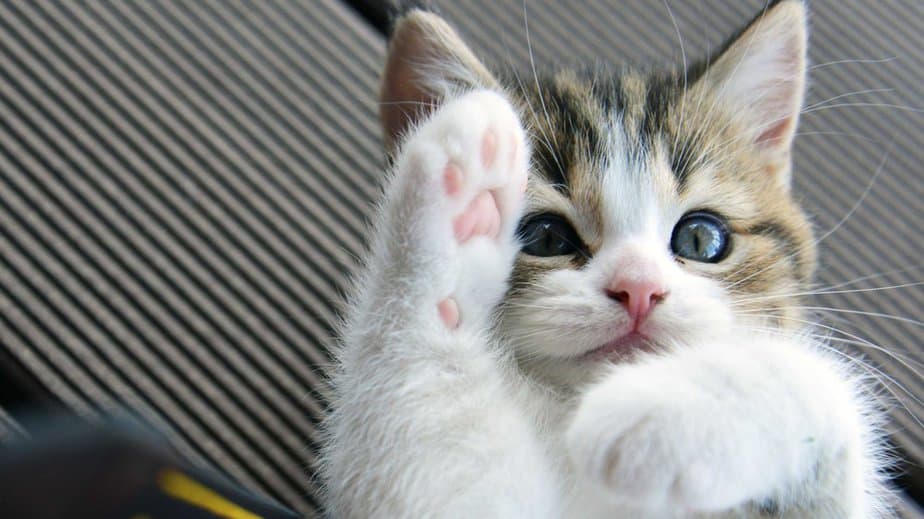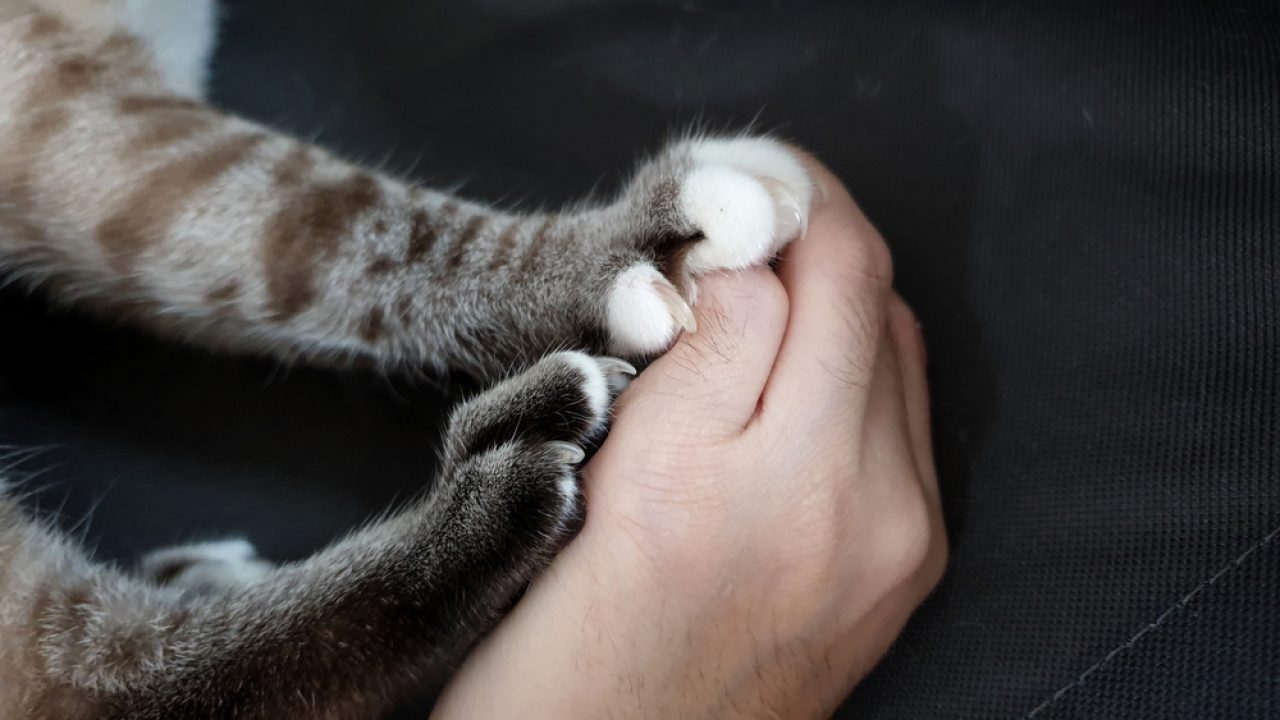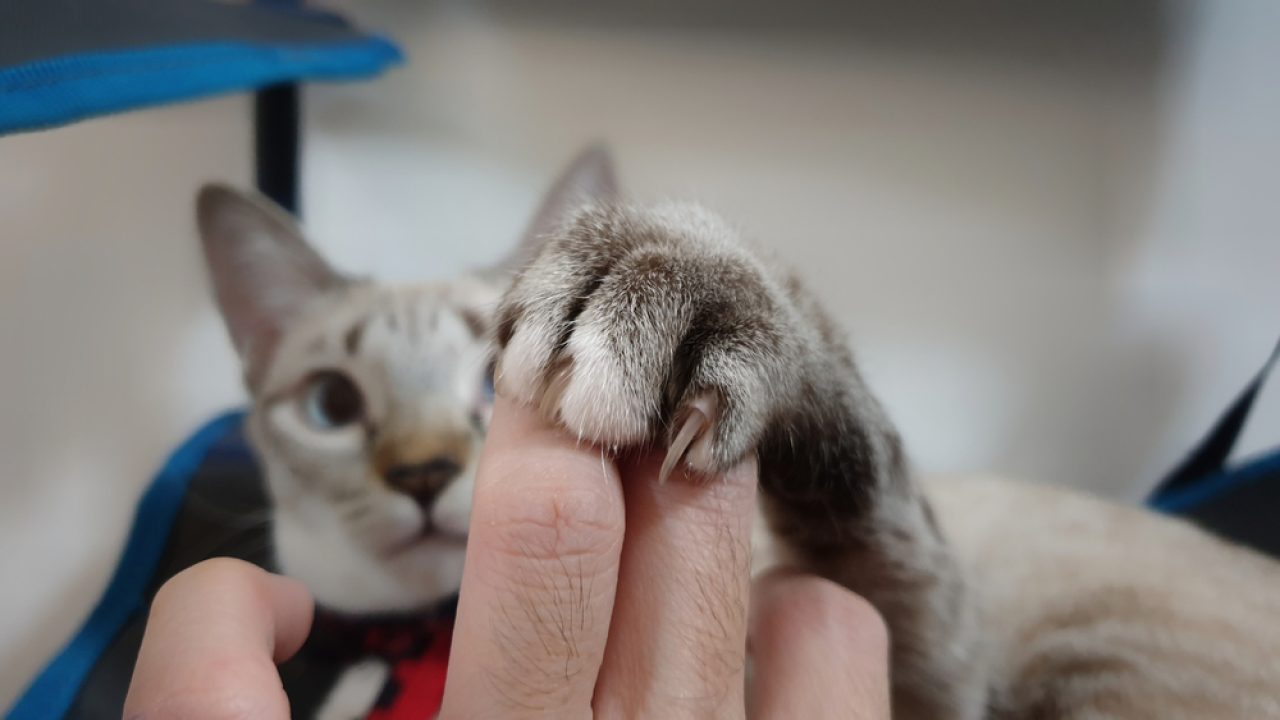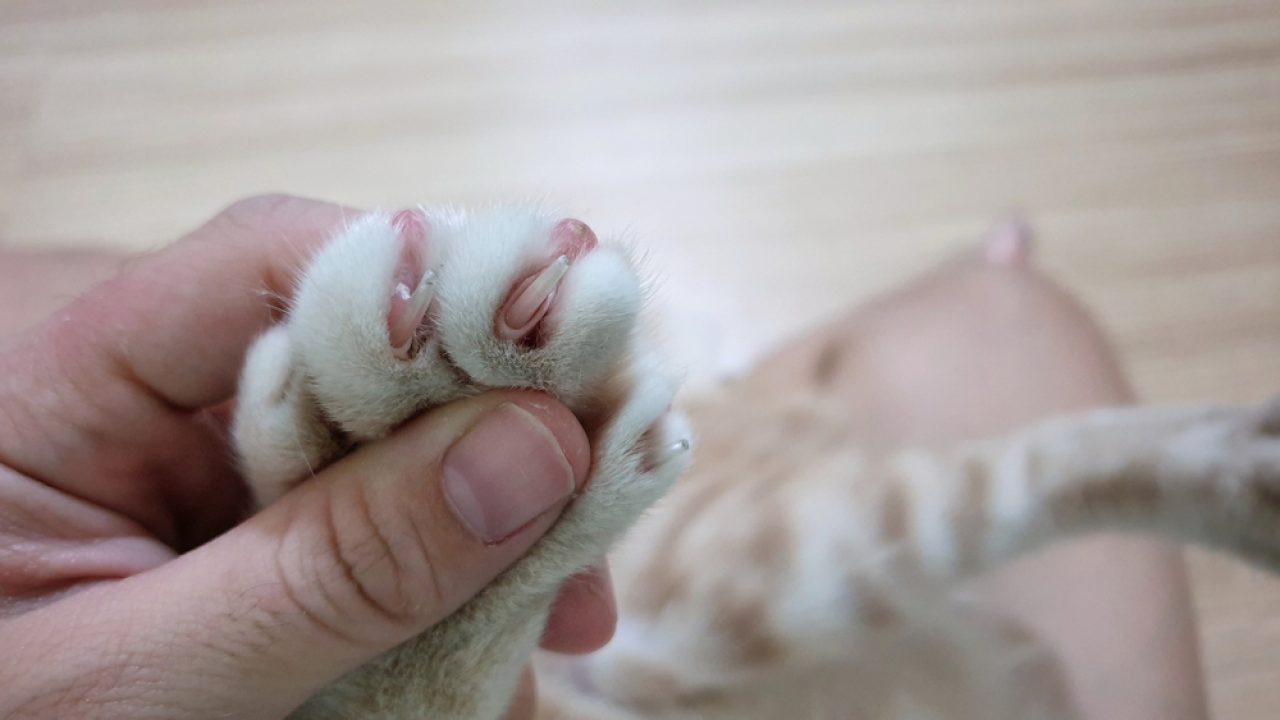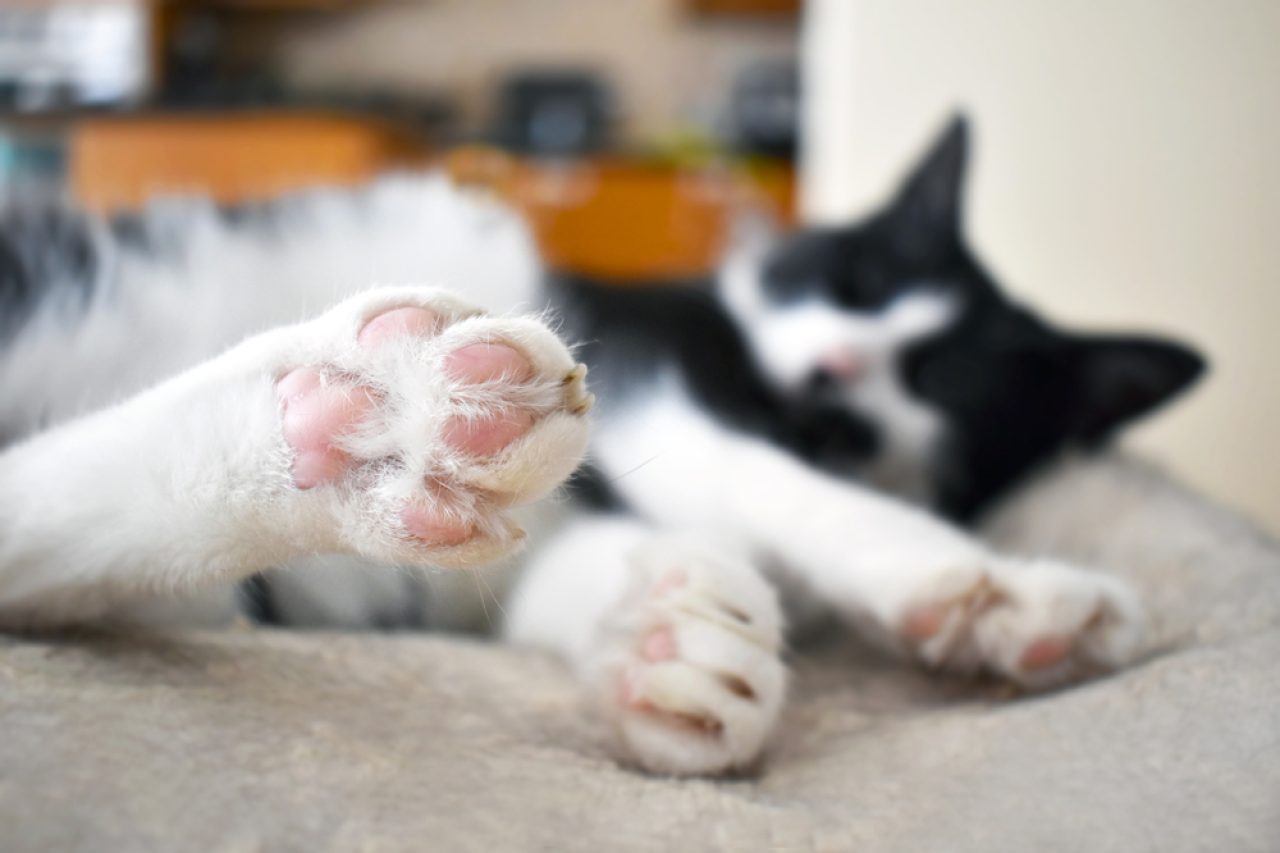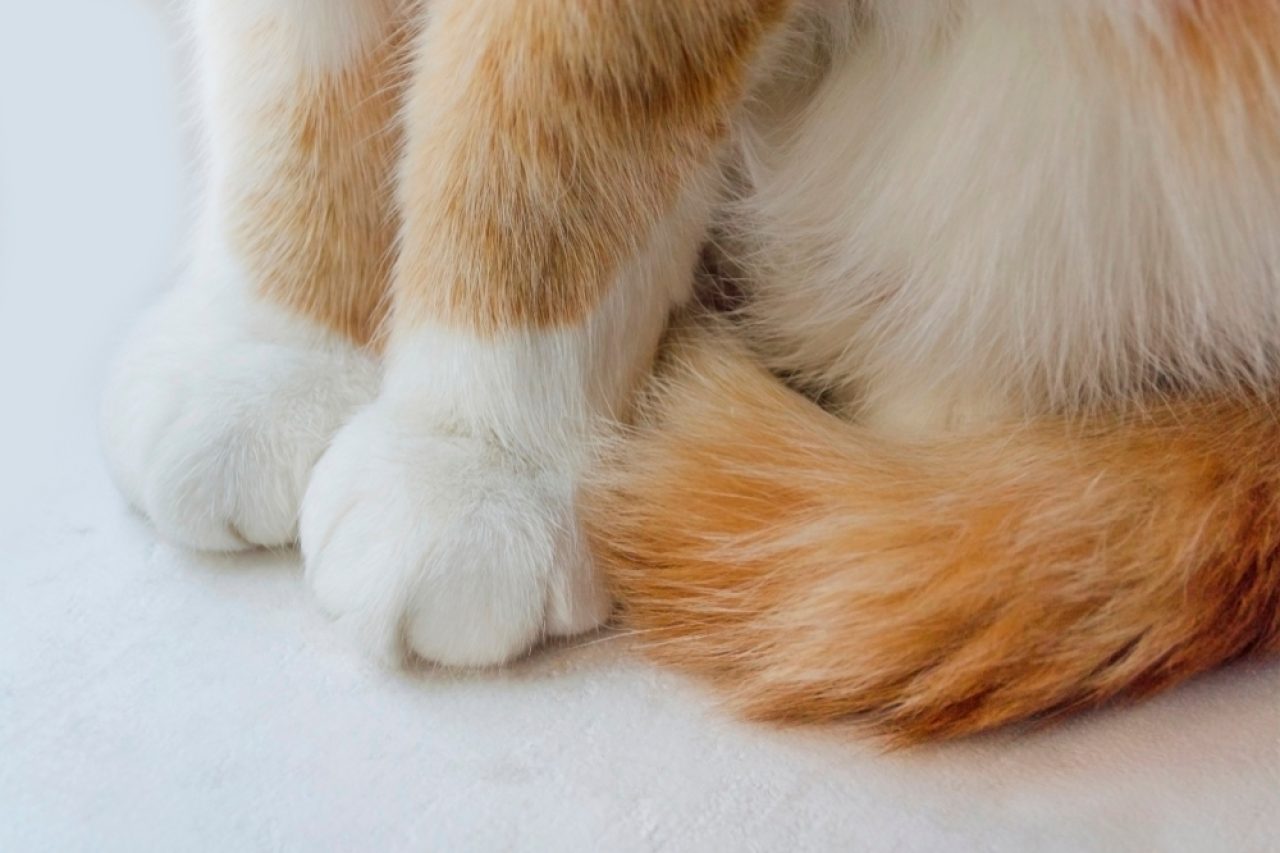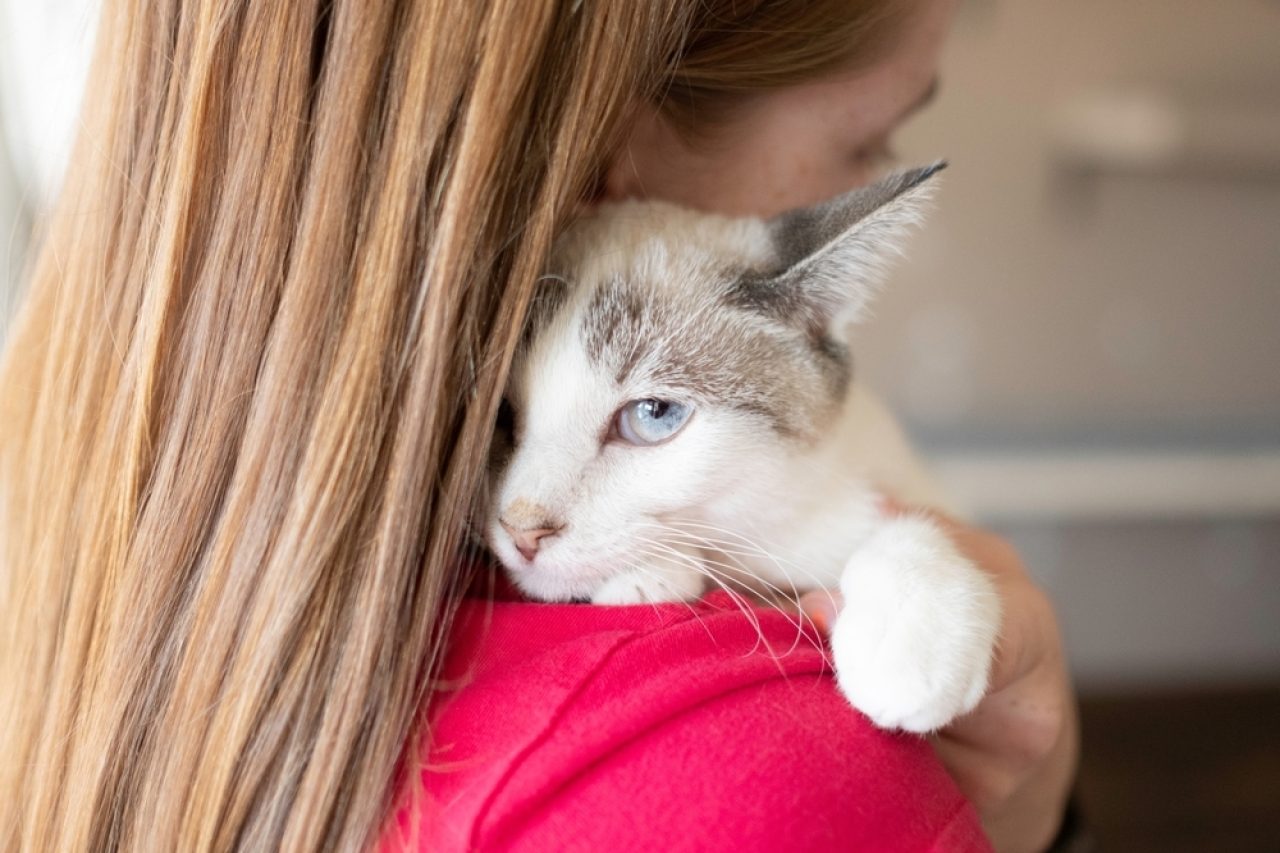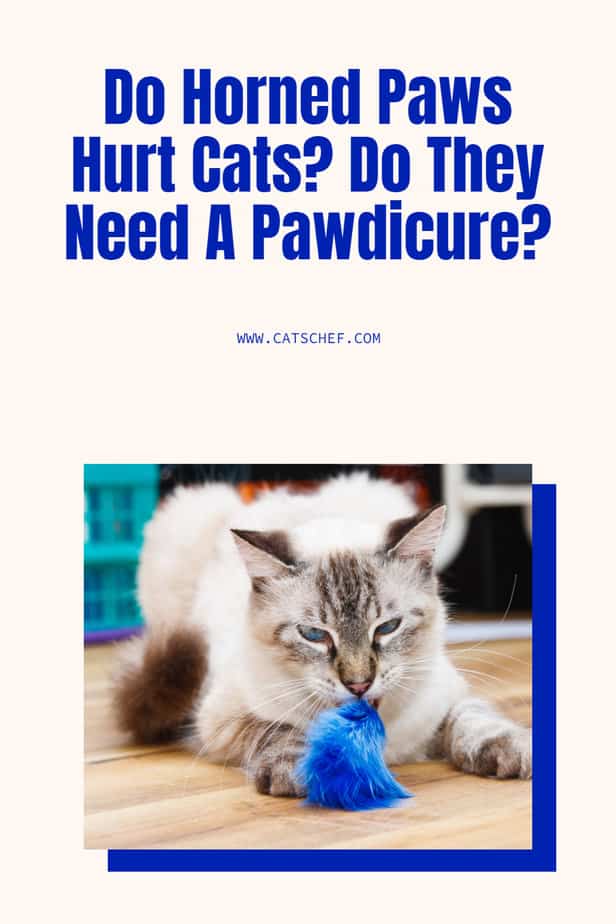📖 Table of Content:
Have you recently noticed your cat’s paws are a bit wonky? It’s almost like there is a hard lump on her paws, and she walks very loudly, right? Don’t panic my friend, but your cat could be dealing with horned paws. And now you probably wonder, “Do horned paws hurt cats?”
I remember my first experience with horned paws in cats. I came to visit my friend and her furbaby, Cleo. While my friend was making us a cup of tea, Cleo and I were catching up on things while cuddling in the living room.
As I was petting her, I noticed her paws were very hard and unusually sharp. I took her paw to see what was going on and what I saw was so unexpected: her front paw had an extra nail!
“What kind of sorcery is this?!”, I wondered in disbelief. Cleo went from Disney princess to Disney villain in just a few days.
My friend laughed when she saw me shocked. She then told me that Cleo is dealing with a condition called horned paws, but that the vet said there was nothing to worry about. She is a purrfectly healthy and happy cat.
You can only imagine my relief when I found out that. I was a bit ashamed for reacting so badly, but I just didn’t know what was going on.
That experience definitely grounded me. But it also taught me another thing about cats and made me curious about the topic of horned paws. So, I did my research, consulted some professionals, and talked to other cat parents who also dealt with it.
And now, I’m about to spill the (toe) beans and share all my knowledge with you. Let’s see what horned paws actually are and do horned paws hurt cats?
What are horned paws?
Also called cutaneous horns, horned paws are a very common skin condition in cats. They typically appear on cats’ paw pads and can appear as one horn on one paw, or as a group of horns on two or more paw pads. Interestingly enough, horns can also appear on other body parts, like the face, although rarely.
Many people refer to horns as second nails since they usually appear at the front of the toe pad, close to cats’ natural nails. But in some instances, they can grow at the bottom of cats’ paw pads in which case cats will put extra pressure on them and have trouble walking.
Even though they are not very pleasant to see, horns are fairly harmless and a no reason for panic.
However, this does not mean you, as a cat parent, should not keep an eye on them. If your kitty has horned paws, you should watch their growth, so you can inform your vet if any changes start to concern you.
Small horns might be nothing to worry about, but uncontrolled overgrowth could be related to some serious medical issues like complex skin conditions, viral infections, or even cancer.
What actually causes horned paws?
Cats spend almost their entire life on their paws. I know their paws and our feet are not the same. Their paws are more durable and created to easily handle all kinds of uneven surfaces. But imagine us walking around barefoot for the rest of our lives. Pretty unimaginable if you ask me.
No wonder there’s such a thing called horned paws. When you think about it, it is a miracle their paws look adorable and flawless most of the time. Cats are indeed pretty amazing!
Anyway, back to the topic. What actually causes horned paws? How do their adorable, soft, toe beans end up harsh and unpresentable?
There are three usual causes of the development of horns on cats’ paws:
- Calluses: cats get them from friction or extreme rubbing on their paw pads. Over time, they can build up and owners can see and hear them when their cat is walking
- Cysts: if cats get cysts on their paws, they will, over time, start to leak and the fluid will harden. Along with dead skin particles, that fluid will build up and form a horn-like lump on cats’ paws
- Keratin: the most common cause. Due to the skin’s overproduction of keratin, horns can develop on cats’ paws
What is hyperkeratosis?
Since the most common cause of horned paws lies in the overproduction of keratin, we will discuss it a bit more in-depth.
Keratin is a structural protein that cats, but also humans, produce. It can be found in the skin, nails, claws, and hair. Lack of keratin can cause nails to break and hair to fall out.
But what does the overproduction of keratin do? Can it be harmless?
We cannot say that the overproduction of keratin is harmless, but it will result in some not-that-desirable consequences.
The technical term for the overproduction of keratin is hyperkeratosis. This condition can cause the abnormal growth of nails and skin to thicken and harden in certain places. It is a very common condition in cats and other animals, and it’s caused by excessive friction in the paw area.
Another cause of hyperkeratosis is genetics. Some cats are simply predestined to have it, just like it’s in our genes to have certain skin issues.
Right now, there is no actual cure available for hyperkeratosis. However, there are some preventable measures owners can take, like softening a cat’s paws with cat-friendly balms or removing the hardened parts on the paws.
Do horned paws hurt cats?
Although horned paws look like they are painful, they actually do not hurt cats’ paws.
In most cases, the hard growth on your cat’s paw will not cause any discomfort or issues while walking, climbing, or jumping. Horned paws will probably just make her walk around your house a bit louder than usual.
However, if the horns develop on the weight-bearing area of the paw, your cat might have some mobility issues. Just like nails, horned paws will keep growing and growing until they curl back and begin to poke the paw. In this case, your cat will probably start feeling pain and discomfort.
Even though some cats live the majority of their life with horned paws and never experience extreme growth, it’s important to keep an eye on your cat. If she’s dealing with the mild version of horned paws, bear in mind that her condition can potentially worsen in time.
So, keep the vet on your speed dial, just in case.
Should you trim your cat’s horned paws?
After we have discussed what horned paws in cats are, the next natural thing is for you to wonder, “Can I trim my cat’s horned paws at home?”
In theory, yes! You can trim your cat’s horned paws if you wish to. Use cat-safe nail clippers just like you would with ordinary nails.
But, is it really necessary?
Experts say that by trimming horned paws at home, owners risk potential bleeding, infections, cutting the healthy skin tissue, or upsetting the unhealthy ones.
Of course, not every condition in your cat’s life has to be an expensive vet visit. But when it comes to tending to your cat’s health at home, you have to be one hundred percent sure you know what you’re dealing with. And if you’re not a vet yourself, no amount of googling can help you as a professional can.
Therefore, before opting for trimming your cat’s horned paws, you need a professional to confirm that these actually are cutaneous horns and not some other skin disorders or a type of tumor.
A vet will be able to answer all your questions and also give you advice on how to properly take care of your cat’s horned paws.
Or maybe, he will put your mind at ease and tell you that there’s nothing really to worry about. Maybe he will tell you how trimming your cat’s horned paws would end up being completely unnecessary. Because if your cat is not bothered by them, neither should you be.
Do cats’ horned paws have to be surgically removed?
As we have already established, horned paws are usually nothing to worry about and for the most part, cats are able to deal with them on their own. But, if the condition worsens and comes to the point where it’s beyond trimming, the surgery is probably inevitable.
If the unusually rapid keratin growth in your kitty’s paws starts to cause unbearable mobility issues, or if there’s a possibility that the horned paws are linked to other, more serious medical conditions, then experts suggest surgical removal.
This procedure is not that serious, and it is done while the cat is under light sedation. The vet will not only remove the horns but will also carefully carve them out from the base of the growth. However, because of this, there’s a possibility that the cat will have some mobility impairments.
After the operation, he will prescribe some medicines for pain reduction, like Azithromycin or Interferon.
Final thoughts
So, do horned paws hurt cats? Or are they something our fluffballs just have to learn to live with?
For the most part, there is no need to make any fuss about horned paws, since they will usually not hurt your kitty.
If you notice she starts to develop horned paws, take her to the vet for a quick body scan. If he gives you the green light and says that there is nothing to worry about, you can take your kitty home and take care of her paws on your own.
You can occasionally give her a pawdicure by rubbing her paws with some cat-friendly balms or by carefully trimming the horns.
Another thing you can and should do is to keep an eye from time to time on your cat’s paws in order to see if there are any changes. By regularly examining your kitty’s toe beans, you are making sure the worst-case scenario is easily predictable and potentially preventable.
